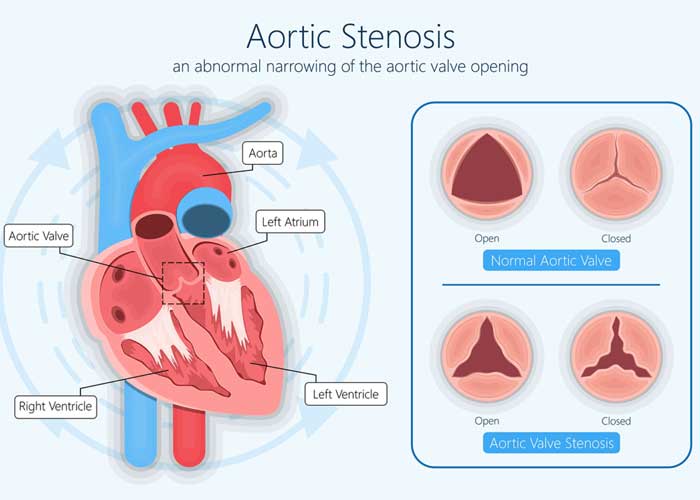Best Aortic Valve Stenosis Treatment In Hyderabad
#Best heart doctor in Gachibowli

There are 4 valves in the heart which help circulate nearly 2000 gallons of blood. However, sometimes, these valve may not open/close right. One of the most critical valve conditions is known as aortic valve stenosis. Stenosis means that the valve leaflets or cusps have enlarged or thickened & do not open as well as they should.
Aortic Valve Stenosis occurs when this valve does not open fully & blocks the flow of blood from the heart into the aorta and the rest of the body.
What causes aortic stenosis?
Thickening of arctic valve may occur due to various factors. Some of these include the following:
Calcium Buildup: Blood carries several minerals & nutrients including calcium, which may get deposited on the aortic valve making it stiffer.
Congenital heart defect: In a normal healthy person, aortic valve has three cusps that fit together. Some people are born with an aortic valve that has either one or two cusps. Some also have four. Heart function is normal for a while but as the individual moves to adulthood, abnormal valve is likely to get stiffer & may require repair or replacement.
Rheumatic fever: Strep throat infection may result in scar tissue formation on the aortic valve. This narrows the valve opening.
Who is at risk of developing Aortic Stenosis?
There are various factors that can put an individual at risk of developing this condition. These include:
Older age
Congenital heart disease
History of infections
Diabetes
High Cholesterol levels
Hypertension
Chronic Kidney Disease
History of Radiation to the chest
What are the symptoms of Aortic Stenosis?
Some patients do not show any symptoms for years. Most often signs start to appear as the narrowing of the valve gets severe
Heart murmur
Angina or chest pain
Feeling dizzy
Dizziness
Fatigue
Palpitations
Shortness of breath
What are the potential complications?
When the valve fails to open properly heart is unable to pump all the blood building up inside it. This can make the hard work harder to get the blood to the body.
Complications resulting from an overworked heart are:
Chest pain by poor blood flow
Fainting
Heart failure
Arrhythmia
How is it diagnosed?
In most cases, aortic valve stenosis is found in a routine check up. When heard with a stethoscope, the doctor may hear a whooping sound or an extra heart beat. This is known as a heart murmur. It is often a sign of a valve problem, but not always.
After a thorough examination & review of the patient’s medical history, the doctor may recommend the following tests:
Echocardiogram
Electrocardiogram
Exercise Stress Test
Cardiac Catheterisation
How can it be treated?
Dr. Sudheer Koganti has over 15 years of experience in successfully treating all heart conditions. He offers the best treatment for aortic stenosis.
Treatment for aortic valve stenosis depends on the severity of the condition.
In mild cases, your cardiologist may only monitor your condition and recommend healthy lifestyle modifications & medications to treat symptoms & cut down your risk of complications. Eventually a surgery may be required to repair or replace the aortic valve. Surgery options include:
Aortic valve repair
Balloon Valvuloplasty
Aortic Valve Replacement
Transcatheter Aortic Valve Replacement


